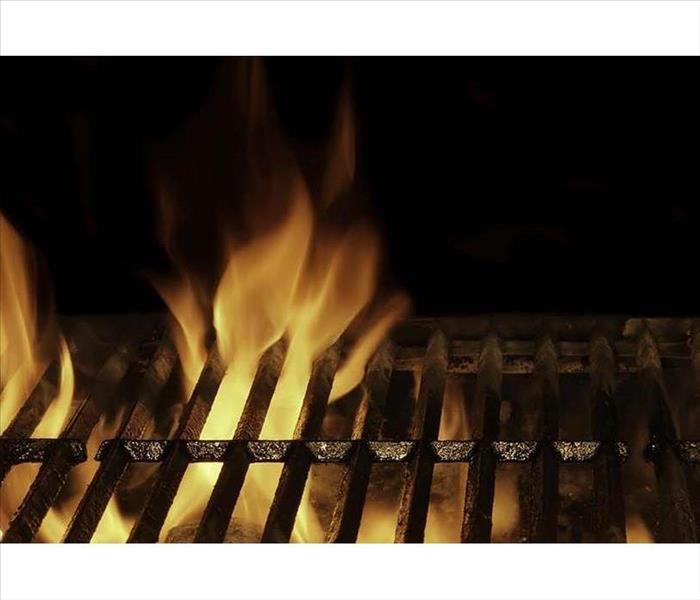Handling Grease Fires That Flare Up on Your Grill
8/24/2021 (Permalink)
 If you have had fire damage to your home due to a grilling incident, you can count on SERVPRO of Fayette/S. Fulton Counties to be there for you.
If you have had fire damage to your home due to a grilling incident, you can count on SERVPRO of Fayette/S. Fulton Counties to be there for you.
Grease fires can happen to anyone when they are cooking, but that does not make them any less frightening or damaging to you and your home. Because grills are often used primarily to cook meat, grease fires are extremely common during cookouts—there is data that indicates that over 5,000 grill fires happen each year, leading to millions in damages and thousands of personal burns.
Although anyone can experience a grease fire no matter how many precautions they take, by following these safety guidelines, you can significantly reduce the chances of one happening to you, keeping your cookouts safer for everyone around.
How to Prevent and Handle Grease Fires When Grilling
1. Perform the proper grill maintenance. Cleaning your grill’s grease traps and drip pans is always the No. 1 recommendation when it comes to preventing grease fires, because it is something that even the most experienced grillmasters can forget. These trays will typically be located underneath your burners and should be removed and emptied when the grill is off. Making it a habit to do this before you start grilling for the day is best.
2. Keep your grates cleaned. In addition to your drip pans, your grill’s grates can also use some TLC to prevent fires. Grease can become stuck on the grates after you grill, and because these can ignite if they get too hot, they can pose a hazard if not handled. Scrape your grill grates thoroughly after every use while the grill is still warm to prevent these food bits from posing a hazard next time.
3. Have a fire extinguisher handy. While many fires can be extinguished with water, putting out a grease fire requires special considerations due to their unique nature. Keep a multi-purpose fire extinguisher that is rated for grease fires nearby every time you use your grill so you can stop any fires before they grow out of hand.
If you have had fire damage to your home due to a grilling incident, you can count on us to be there for you. Give us a call at any hour to learn more about our restoration processes and receive a quick response from our team of technicians.




 24/7 Emergency Service
24/7 Emergency Service